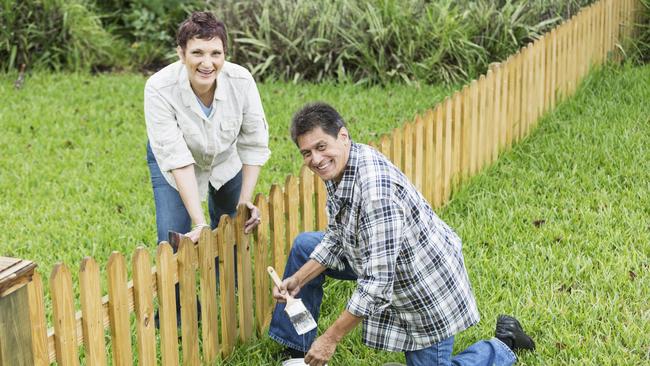How neighbourhoods get top vote as homebuyers hunt for ‘their people’
A real estate company is offering prospective homeowners a feature that, for many, really matters: a breakdown of how their future neighbours voted.

A real estate company is offering prospective homeowners a feature that, for many, matters more than advice on local schools, access to healthcare or shopping: a breakdown of how their future neighbours voted.
Oyssey, designed by a Boston-based entrepreneur and former real estate broker, scrapes open-source data on campaign contributions and party registration to reveal the political inclinations of a neighbourhood as well as levels of pet ownership, education and household wealth.
It even displays TikTok videos made in neighbouring homes.
Huw Nierenberg, who co-founded the company with friends he met while working on political campaigns, said the tool would help home buyers “to find their people”. With the US more polarised than ever, Nierenberg is betting on that translating to housing.
“It’s a cross-control of hyperlocal, hypercross-reference data that’s designed to give buyers an immediate understanding of exactly what they’re looking at – without putting their agent in an uncomfortable position,” he said.
“Savvy younger buyers are looking closely at all available data.
“And when they’re purchasing a property, they’re betting on the people that have also purchased properties around them.”
Nierenberg denied that his platform would put people into silos, insisting he was simply providing transparency.
He said his first thought was for political data but his second was for pet ownership, noting that dog owners would feel more at home in a neighbourhood where people prioritised pets.
The innovation comes amid intense polarisation in the US, where in September a record 80 per cent of adults told Gallup pollsters that they thought Americans were greatly divided on the most important values.
Nierenberg recalled accounts of the “shock” felt by those who moved from liberal northern regions to Florida or Texas during the pandemic and realised they were at odds with their new neighbours, many of whom were avid Republicans.
“They’re finding that they’re putting up a flag that’s different (to) their neighbour’s flags,” he said. “Our goal is as much harmonious living as possible and as much appreciation in people’s homes as possible.”
Property agents will pay $US99 ($160) a month to access the platform and can then share the tool with clients.
Ilyce Glink, author of the book 100 Questions Every First-Time Home Buyer Should Ask, pointed out that election data by district was already available online but that the app might give agents an edge when trying to secure clients.
“The election has fractured our society further and people are more likely to want to live near people who think, vote and pray like they do,” she said.
“But it feels to me as though if that’s important to you, you will already know this.”
Jonathan Miller, who founded his New York-based consultancy firm almost 40 years ago and appraises $US5bn worth of property a year, said the app was intriguing.
“It reminds me a lot of the early days of the Zestimate (a valuation tool offered by the property website Zillow) where everybody was looking at the value of a relative’s home,” he said. “The next step ... will be even more personal details: how many in the neighbourhood are left-handed, or vegan, or love CrossFit?”
The Times


